What You Need to Know About Korean Ginseng — The 7 Surprising Health Benefits You May Not Know
The 7 Surprising Health Benefits of Korean Ginseng
Overview

Ginseng is believed to have wide-ranging health benefits, including improved mental and emotional stability, elevated mood and energy levels, reduced stress levels, better immune function, enhanced blood circulation, increased glucose metabolism, and a lower risk of chronic disease.
Read on to find out the astounding health benefits of Korean ginseng and how it can help improve your overall well-being.
Health benefits of Korean ginseng
1. Holistic management of stress
Ginseng is most commonly known for its powerful adaptogenic potential. Adaptogens are a select class of herbs that help boost your resistance to all kinds of stressors—physical, mental, emotional, or environmental.
Best taken in the form of health supplements, adaptogen herbs minimize the negative effects of stress and fatigue on the central nervous system and help manage homeostasis. In a 2019 study, researchers found that a 6-week supplementation with Korean red ginseng helped stabilize the sympathetic nervous system and improved brain function in individuals with high stress.
Korean ginseng has also been found to modulate the immune response and hormonal secretions due to stress. A 2017 study suggested that the herb plays a beneficial role in regulating the hypothalamus-pituitary-adrenaline (HPA) axis and can help prevent many serious health conditions like depression, anxiety, asthma, hypertension, and post-traumatic stress disorder.
2. Reduces inflammation and cancer risk
Researchers have identified over 150 types of ginsenosides in both Asian and American varieties of ginseng. These compounds are known to help fight free radical damage, lower chronic inflammation, and reduce the risk of chronic conditions like cancer and diabetes.
A 2016 meta-analysis of studies involving 334,554 participants suggested that people who regularly take ginseng have a 16% lower risk of developing cancer. Researchers found that ginsenosides and their metabolites were helpful in modulating signaling pathways associated with angiogenesis (the formation of new blood vessels) and metastasis (cancer’s spread to a different part of the body), which could help prevent tumor growth.
Gingseng has also been suggested as a possible adjunctive therapy for patients undergoing chemotherapy. Research shows that it can improve the effectiveness of cancer treatments and minimize the side effects, improving the overall quality of life in patients.
3. Improves cognitive function
Korean ginseng contains neuroprotective and nootropic properties, which means it improves mental performance and supports learning. Studies have shown it can improve blood flow to the hippocampus region of the brain, which is heavily involved in memory and learning. In addition, ginseng helps modulate various neurotransmitters and hormones that protect your brain from fatigue.
Being high in antioxidants, it lowers oxidative stress and reduces toxin build-up in brain cells. Evidence shows that long-term supplementation with this rejuvenating herb can reduce the risk of developing Alzheimer’s and Parkinson’s disease in old age.
4. Helps manage blood sugar levels
Evidence suggests that Korean ginseng may be a natural and effective way to improve blood sugar control in people with type-2 diabetes. Ginsenosides found in this medicinal herb have been shown to improve pancreatic cell function, lower inflammation, enhance insulin production and sensitivity, and promote glucose uptake in cells.
A 2016 review evaluated the efficacy of long-term ginseng supplementation on patients with type-2 diabetes and glucose intolerance. Researchers found that the herb was effective in improving fasting blood glucose and postprandial (after-meal) insulin levels.
Although the treatment did not have any effect on HbA1c levels, it significantly improved HOMA-IR levels, which is an indicator of beta cell function and insulin resistance. The levels of total cholesterol, bad cholesterol, and blood lipids were also found to be significantly decreased in participants taking Korean ginseng. Researchers also pointed out that ginseng has an excellent safety profile and might be a better option for drug-naïve patients than those already taking medications.
In another placebo-controlled trial, taking 3 grams of Korean ginseng extract per day for 12 weeks improved insulin sensitivity and reduced inflammation in obese individuals with impaired glucose tolerance.
5. Supports immune function
Both Korean and American ginseng varieties are known for their powerful antioxidant and anti-inflammatory properties and are widely used for boosting general immunity and well-being. Studies have shown that it works by multiple mechanisms to boost the body’s natural defenses.
Enhances natural killer cell activity: Natural killer (NK) cells are a type of immune cell that identifies and eliminates tumors, viruses, bacteria, and other microbes. Korean ginseng has antimicrobial properties and has been found to enhance the activity of these primary defenders.
Regulates cytokines: It has been found to stimulate the production of cytokines (including interferon and interleukins), which are signaling proteins that play a crucial role in inflammation response and wound healing.
Increases immune cells: In a 2021 trial, 100 healthy adults were divided into two groups that either took 2 grams of Korean red ginseng tablet or a placebo for 8 weeks. Researchers found that the ginseng group showed a significant increase in the number of T cells, B cells, and white blood cells than the other group. Long-term supplementation with this herb has also been found to reduce the severity and duration of common colds in adults.
6. Natural remedy for chronic fatigue
Chronic fatigue is a serious condition that goes beyond normal lack of energy and tiredness. It can cause a wide range of physical and mental symptoms, such as poor concentration, constant feeling of tiredness, lack of motivation, disturbed sleep or extreme sleepiness, low mood, irritability, high stress, sore muscles, stiff joints, and mental fogginess. Korean ginseng can help address the root cause of fatigue and manage multiple symptoms at once.
Being a natural adaptogen and nervine tonic, it helps you sleep better at night, improves mood, and promotes hormonal balance. Studies have shown that it can reduce symptoms of brain fog and enhance mental clarity, cognitive performance, working memory, focus, and attention span.
Korean ginseng has been found to improve the production of ATP (adenosine triphosphate), which is the primary energy currency of the body. It also stimulates the lymphatic system and enhances oxygen delivery to muscles. This can naturally energize muscles and reduce physical symptoms of fatigue.
A 2018 study suggested ginseng as a natural treatment option for several types of fatigue, including cancer-related fatigue, fatigue syndrome, and chronic fatigue triggered by prolonged illness. Another study found taking 3,000 mg of Korean ginseng per day to be effective in relieving chemotherapy-related fatigue.
7. Improves sexual and reproductive health
Chronic stress and hormonal imbalances are some of the most common reasons for loss of libido. Korean ginseng has been used for centuries as a natural aphrodisiac and is known to stimulate the production of sex hormones in both men and women.
Studies have shown that regular intake of Korean ginseng supplements by both partners can help improve the chances of conception. It has been found effective in erectile dysfunction and may improve sperm count and motility.
Ginseng has also been shown to improve sexual function and satisfaction in postmenopausal women and those with hypoactive sexual desire disorder (HSDD).
Potential risks and side effects of Korean ginseng
Korean ginseng is generally safe for most people, even for long-term use. However, some people may experience allergic side effects like sleep troubles, headaches, menstrual problems, dizziness, digestive issues, or abdominal pain.
The safety profile of ginseng for pregnant and breastfeeding women is not well-evaluated, and it is best to speak with your doctor before taking it regularly.
If you are taking medications for diabetes, heart disease, depression, bleeding disorders, or high blood pressure, consider speaking with your doctor before incorporating ginseng into your daily routine. In some cases, it has been known to increase blood pressure and may cause heart palpitations. Taking it along with anti-diabetic medicines may cause your blood sugar levels to drop too low and trigger negative health effects.
Final thoughts
Korean ginseng is a powerful adaptogenic herb that can help manage chronic stress and promote mental and physical wellness in many ways. Studies have shown this age-old herb can improve brain function, support immune function, protect healthy cells from free radical damage, lower inflammation, increase energy levels and stamina, and reduce the risk of various chronic conditions.
Ginseng is widely available as capsules, tablets, powders, and teas. If you are considering taking it as a health supplement, make sure to speak with a healthcare provider about appropriate doses, possible side effects, and drug interactions.
For natural and healing remedies, products, and supplements that can help you live your most optimal healthy life, visit our store here!
To Your Health!
References
https://www.ncbi.nlm.nih.gov/pmc/articles/PMC7790881/
https://www.liebertpub.com/doi/10.1089/acm.2017.0361
https://pubmed.ncbi.nlm.nih.gov/25347695/
https://pubmed.ncbi.nlm.nih.gov/27616903/
https://www.ncbi.nlm.nih.gov/pmc/articles/PMC4753873/
https://www.ncbi.nlm.nih.gov/pmc/articles/PMC5628357/
https://pubmed.ncbi.nlm.nih.gov/20647027/
https://www.ncbi.nlm.nih.gov/pmc/articles/PMC6606819/




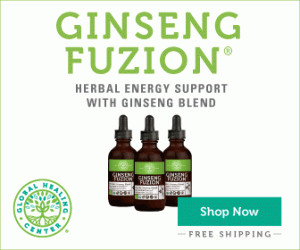

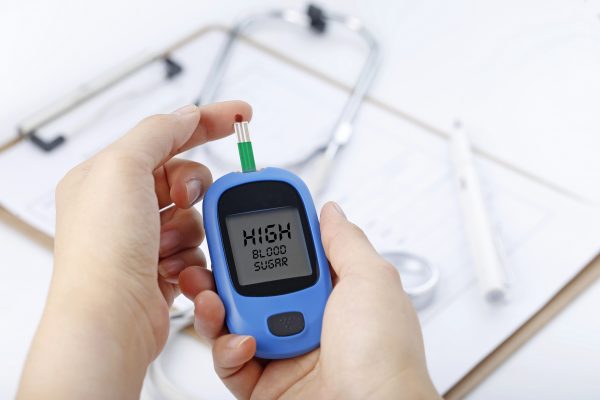


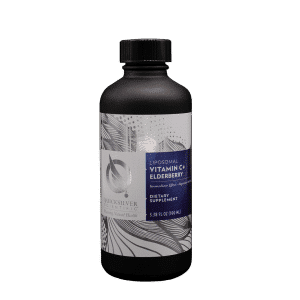
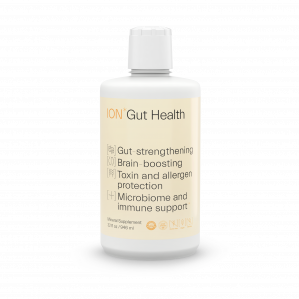
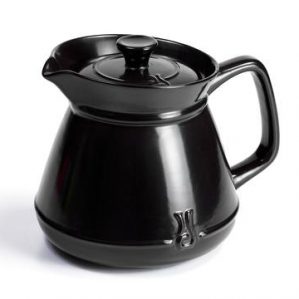
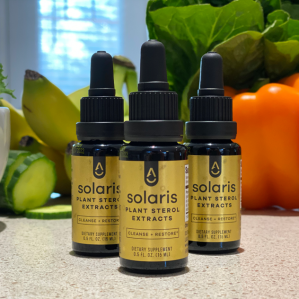
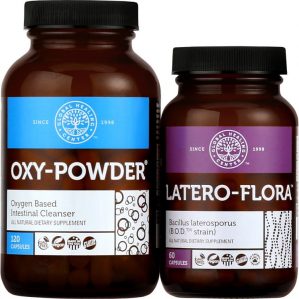











0 Comment